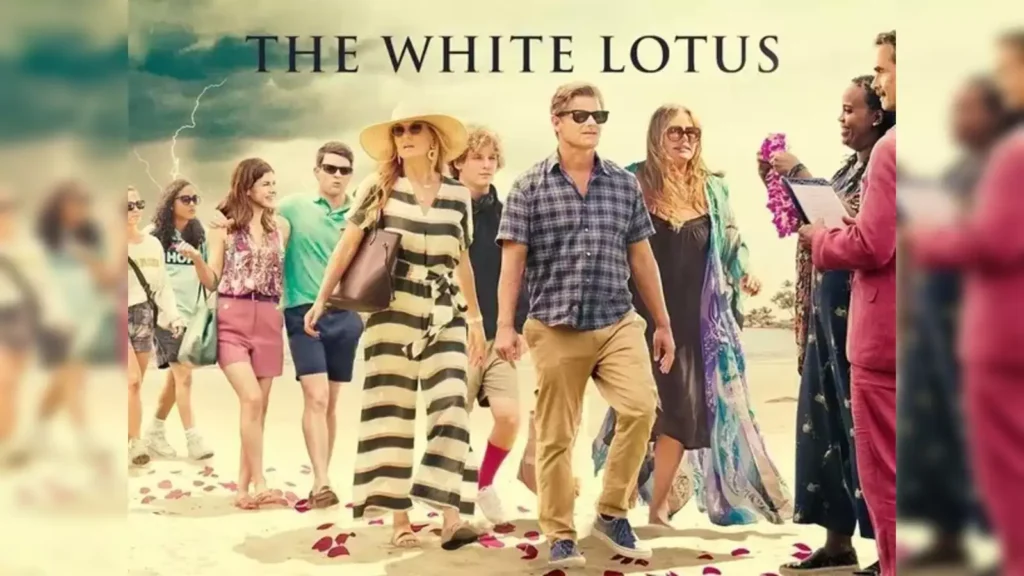The White Lotus : Some characters received happy ends, while others did not. However, there were enough twists to keep viewers wondering until the finish.
The discussions around the “White Lotus” season have been intriguing to watch. Is the pacing too slow? Is Mike White shortchanging his Thai characters? Does all this incest go too far? Most importantly, has White ran out of things to say about very affluent, terminally miserable white people?

Before the season began, I decided to watch all six of the episodes HBO gave to critics over a two-day period, and by the conclusion of Episode 6, this season was really connecting with me.
I thought the discussion of whether individuals can ever truly leave their worst selves and poor choices behind to be quite touching, adding a deeper, more haunting meaning to all of this show’s normal kinky sex and barely restrained violence.
Then Episode 7 was a bit of a letdown. It contained too many anticlimactic moments and harsh exchanges. It was the first new episode I had seen in almost a month, and it made me question whether I had been overly forgiving of the season’s flaws. Was I lured by the binge?
For better or worse, Episode 8 delivers all of the climactic moments that Episode 7 avoided. During this 90-minute conclusion (which is long but never dull), practically every important character must decide who he or she truly wants to be. Several of them make awful judgments, and some of them are richly compensated for it – as long as money and security are considered rewards.

Let’s begin with Belinda, our link to Season 1 of “The White Lotus”—and Season 2, via Tanya and Greg. When we met Belinda in Hawaii, she was being persuaded to establish her own spa business with Tanya. Tanya then fell for Greg, crushing Belinda’s hopes, which she had just begun to feel were feasible. In the Season 3 finale, Belinda and her son, Zion, persuade Greg to give them $5 million. Belinda instantly abandons her original intention to start a spa with her Thai lover, Pornchai.
It’s difficult to envy Belinda a financial windfall, especially since she scarcely knew Tanya. However, the way it unfolds does not present her in the greatest light. During the discussions, Belinda becomes irritated by Zion’s nonchalant dismissals of Greg’s murky history, and she is particularly agitated when he references a Langston Hughes poem to establish a point. However, it turns out that this was all a negotiation strategy. Money is all that matters to her.
I have similar conflicted thoughts about what occurs to Gaitok, who decides early in the show to choose his Buddhist religion above his professional goals. When Valentin discovers what Gaitok has discovered — that his buddies Vlad and Aleksei looted the White Lotus’ luxury goods store with Valentin’s assistance — he begs for mercy, claiming that if they are deported back to Russia, they would almost surely be murdered. Weighing his conscience as a Buddhist, Gaitok believes that if his acts may result in someone’s death, he must avoid them.
However, at a climactic point in the show, Sritala orders Gaitok to shoot and kill Rick, who is leaving the scene after assassinating Jim Hollinger. Gaitok hesitates, but ultimately fires the fatal shot. We see at the end of the episode that he finally gets the nice job he wants, chauffeuring and guarding Sritala, with Mook cheering him on.
All he needed to do was betray his ideals.
This is undoubtedly part of White’s bigger message. The prospect of money and achievement motivates individuals both in the real world and in fiction. Given what we know about Belinda and Gaitok, their decisions are not out of the ordinary. But they’re a touch dismal, especially when layered on top of each other.
Rick and Chelsea’s ending is also disappointing, but it seems fitting. When Rick returns from Bangkok, he appears to be ready to embrace a life of serenity and comfort with his always-positive girlfriend. But when he encounters Jim again, the elderly guy makes the mistake of labeling Rick’s mother a drinker, a slut, and a liar before showing Rick the pistol he is holding. It turns out that the mysterious gunshots we heard in Episode 1 — at least the first ones — were fired by Rick, who snatches the pistol while Jim is preoccupied and shoots him dead. White uses water images again in this episode, particularly in the one large scene of death—and two of rebirth. Rick and Chelsea float in the water after Gaitok shoots him. While everything is going on, Lochlan is battling for his life elsewhere on the resort, visualizing himself swimming up through a pool.
The Ratliffs’ narrative finishes on a nice note, counterbalancing the negative tone of the rest of the program. Piper announces that she no longer wants to live with the Buddhists, which sets the stage for the events that follow. White leaves it unclear if she is making this decision to prevent Lochlan from following her example or whether she was truly uncomfortable in the temple, as her mother anticipated. (Piper does weep some believable tears as she narrates her night at the temple.) In any case, it disturbs Tim, who had been warming to the concept that the Ratliffs might learn to live with nothing.
Tim develops his suicide plot by combining toxic seeds from a local fruit into four piña coladas. He asks his family to drink with him on their last night in Thailand. He first excludes Lochlan from the gathering since his youngest kid seemed to be capable of coping with poverty. Tim then changes his mind and steals everyone else’s drink, stating that the coconut milk is sour. The next morning, Lochlan nearly dies after blending a protein smoothie with deadly seeds.
Tim’s suicide plan involves putting deadly seeds from a native fruit into four piña coladas. He invites his family to join him for a drink on their last night in Thailand. He first excludes Lochlan from the gathering since his youngest child seemed to be capable of dealing with poverty. Tim suddenly changes his mind and snatches everyone’s drink, claiming that the coconut milk is sour. The next morning, Lochlan almost dies after mixing a protein smoothie with lethal seeds.
It’s tempting to read too much into episode names, interpreting them as if they were painting titles: a method to understand the artist’s aim without having to think about what we’re seeing. White appears to be advocating a reductive reading with the title of this conclusion, “Amor Fati,” which relates to a notion that is frequently used in philosophy and religion. As Chelsea explains, it means “embrace your fate,” and it is frequently used to express the notion that we should appreciate pain as part of what makes us human.

This episode emphasizes that point with the way it opens, with all of the characters waking up to another disastrous day while Luang Por Teera preaches his followers about how humans desire “solutions” that are only ephemeral and unsatisfying. He claims that it is “easier to be patient once we accept there is no resolution.” (I hear Mike White whispering there, advising “White Lotus” fans that what is about to happen may not be to their liking.)
That is why my favorite scene in this climax is far less dramatic than the shooting or poisoning. It happens at a supper with the gal buddies. While Jaclyn and Kate discuss their lovely trip in Thailand, Laurie bursts into tears, claiming she has been depressed all week and comparing her failures to her friends’ supposedly beautiful lives.

She concludes with what may be the season’s finest phrase, stating in turn to Jaclyn and Kate, “I’m glad you have a beautiful face, and I’m glad you have a beautiful life, and I’m just happy to be at the table.”
Maybe that isn’t the secret to life that this “White Lotus” season seemed to promise at times, before it retreated in the finale to caution and cynicism. But it’s a sentiment that resonates.

